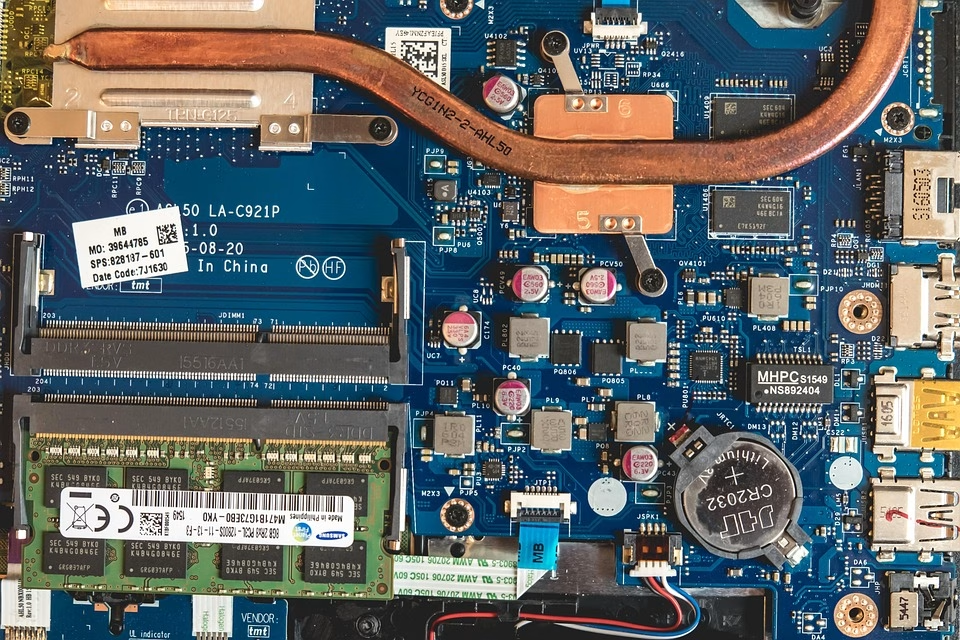From Data to Decisions: The Role of AI in 2025’s Digital Transformation

Introduction – Why This Trend Matters in 2025
As we advance into 2025, the technology landscape is undergoing seismic shifts, with projected market growth reaching $5 trillion in digital services alone. The increasing adoption of AI, cloud computing, and quantum technologies is facilitating the rapid evolution of established industries. According to a report by IDC, investments in AI are expected to exceed $500 billion this year, creating unprecedented opportunities for innovation and efficiency. The urgency to act in this dynamic environment cannot be overstated, as companies that fail to adapt risk falling behind.
Detailed Analysis of the Trend
What It Is
2025 marks a pivotal year where several key technology trends converge:
- AI Integration: Businesses are deploying AI for enhanced decision-making, predictive analytics, and customer engagement.
- Quantum Computing: The race for quantum supremacy is intensifying, with more breakthroughs making practical applications within reach.
- Decentralized Technologies: Blockchain and decentralized finance (DeFi) are transforming traditional financial systems, empowering transparency and security.
How It Works
- AI: Utilizes machine learning and neural networks to analyze vast datasets, automating processes and generating insights.
- Quantum Computing: Employs qubits to perform computations that traditional silicon-based systems can’t match, solving complex problems at lightning speed.
- Blockchain: Facilitates secure, traceable transactions through distributed ledgers, enhancing integrity in operations.
Why It’s Important Now
The convergence of these technologies is enabling industries to become more agile and data-driven than ever. According to Forrester Research, 70% of businesses plan to adopt AI within the next 12 months to improve operational efficiencies. As the demand for data security and autonomous solutions rises, staying ahead of these trends is vital.
Adoption & Use Cases
Big Tech Examples
- Microsoft: Introduced Azure Quantum, a cloud platform that allows businesses to experiment with quantum algorithms.
- Google: Launched DeepMind’s AI tools for healthcare, significantly improving diagnostic accuracy in medical imaging.
- Amazon: Integrated AI into its logistics and supply chain management, cutting delivery times by as much as 30%.
Startup Innovations
- OpenAI: Developed new generative models that enable creative workflows across industries, from film to marketing.
- Nvidia: Released GPUs optimized for AI workloads, making high-performance computing accessible to smaller firms.
Industry Applications
- Healthcare: AI-driven diagnostics are streamlining patient care and reducing costs.
- Finance: Blockchain is enhancing the accuracy and speed of financial transactions and compliance processes.
Opportunities & Challenges
Benefits
- Efficiency: Automation through AI reduces manual errors and operational costs.
- Innovation: New technologies foster creativity, leading to groundbreaking solutions.
- Transparency: Blockchain enhances trust by providing verifiable transaction histories.
Risks and Barriers
- Security Concerns: As systems become more interconnected, vulnerabilities increase.
- Ethical Dilemmas: AI biases and privacy issues pose risks to society.
- Regulatory Hurdles: Governments are struggling to keep pace with rapid technological advancements, leading to uncertainty.
Future Outlook
Experts predict that by 2026, organizations will increasingly leverage hybrid infrastructures, combining on-premises and cloud solutions with AI-driven automations. The global AI market is expected to surpass $1 trillion by 2027, with booming developments in ethical AI practices. Similarly, quantum computing is projected to tackle real-world problems in logistics and pharmaceuticals by unlocking new capabilities.
Final Thoughts
Staying aware of these trends isn’t just strategic—it’s essential for sustainability in the marketplace. Businesses and consumers alike should prepare for a landscape where adaptability and innovation are paramount. Embracing these technologies can lead to increased efficiency, better customer experiences, and competitive advantages in a rapidly evolving digital ecosystem.
SEO FAQs
What are the biggest tech trends of 2025?
The key trends include AI integration, quantum computing advancements, and decentralized technologies such as blockchain.
How is AI changing business this year?
AI is revolutionizing decision-making, enhancing operational efficiencies, and personalizing customer experiences across industries.
What’s next after 5G?
Technologies like 6G and edge computing are set to enhance connectivity and speed, enabling more complex IoT applications.
Is blockchain still relevant in 2025?
Absolutely! Blockchain continues to reshape industries through increased transparency, security, and trust in transactions.
By staying informed on these trends, businesses can leverage emerging technologies to fuel growth, mitigate risks, and stay competitive in this fast-paced digital world.
🚀 Try Ancoia for FREE today and experience the power of business automation!
🔗 Sign up now and get a 7-day free trial



